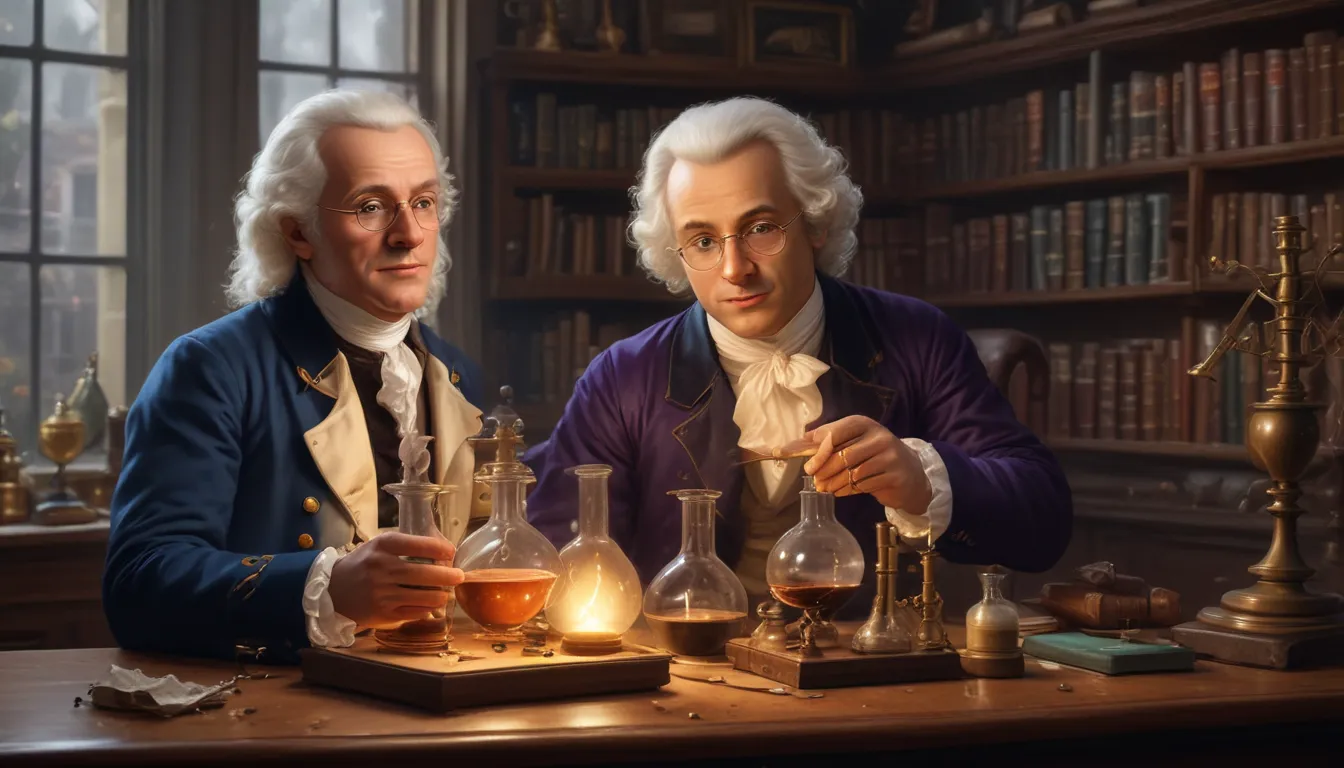A Note About Images: The images used in our articles are for illustration purposes only and may not exactly match the content. They are meant to engage readers, but the text should be relied upon for accurate information.
Welcome to the captivating realm of Lavoisier’s Law, a revolutionary principle named after the esteemed French chemist, Antoine Lavoisier. Embark on a journey through the intriguing world of chemistry as we unravel the significance and impact of this fundamental law. From its historical context to practical applications, prepare to be amazed by the remarkable insights into Lavoisier’s Law and its profound influence on the field of chemistry.
Delving into the Essence of Lavoisier’s Law
At the core of Lavoisier’s Law, also known as the Law of Conservation of Mass, lies a groundbreaking concept that transformed our understanding of chemical reactions. This principle asserts that in a closed system, matter cannot be created or destroyed but only change forms. It serves as a cornerstone in chemistry, shaping countless scientific discoveries and remaining a vital concept in education.
The Legacy of Antoine Lavoisier
Antoine Lavoisier, hailed as the Father of Modern Chemistry, formulated this revolutionary law during the late 18th century. Through meticulous experiments and groundbreaking discoveries, he laid the foundation for the concept of stoichiometry, which deals with the quantitative relationship between reactants and products in chemical reactions.
Pivotal Moments in Chemistry’s Evolution
The discovery of Lavoisier’s Law marked a pivotal moment in the evolution of modern chemistry. By establishing the conservation of matter, Lavoisier paved the way for further advancements in the field, debunking the prevailing theory of phlogiston and contributing to the development of the periodic table.
The Universality of Lavoisier’s Law
Lavoisier’s Law applies to all types of chemical reactions, from simple to complex. Whether it’s a combustion reaction or a synthesis reaction, this principle holds true, providing a solid framework for understanding the transformations that occur during chemical processes.
Practical Applications in Diverse Industries
The practical applications of Lavoisier’s Law extend beyond the realm of chemistry. Industries ranging from pharmaceuticals to environmental science rely on this fundamental principle to ensure accurate measurements and precise outcomes in various processes.
The Enduring Impact of Lavoisier’s Law
Despite the passage of time and advancements in scientific knowledge, Lavoisier’s Law remains a steadfast principle in chemistry. Its implications transcend chemical reactions, influencing other scientific disciplines such as physics and biology. This law serves as a basis for predicting outcomes, providing a framework for the conservation of mass and energy in diverse contexts.
Unveiling the Practical Implications
The applications of Lavoisier’s Law continue to be indispensable in analytical chemistry, guiding scientists in determining the composition and concentration of substances in various samples. This foundational principle also contributes to the development of the modern scientific method, emphasizing precise measurements and rigorous observation in scientific inquiry.
A Testament to Scientific Progress
Lavoisier’s Law serves as a reminder of the remarkable discoveries that arise from careful experimentation and observation. Antoine Lavoisier’s work exemplifies the dedication and intellectual curiosity that drive scientific progress, inspiring future generations of chemists to push the boundaries of knowledge.
Embracing the Legacy of Lavoisier’s Law
In conclusion, Lavoisier’s Law stands as an extraordinary scientific principle that continues to shape the landscape of chemistry. By exploring the fascinating facts surrounding this law, we gain a deeper appreciation for the genius of Antoine Lavoisier and the enduring impact of his contributions to science. Let us marvel at the wonders of Lavoisier’s Law and its role in illuminating the intricate workings of our universe.
FAQs: Exploring Common Queries about Lavoisier’s Law
-
Who discovered Lavoisier’s Law?
Lavoisier’s Law was discovered by Antoine Lavoisier, a renowned French chemist known as the “Father of Modern Chemistry.” -
What is the significance of Lavoisier’s Law?
Lavoisier’s Law, also known as the Law of Conservation of Mass, underscores the fundamental principle that mass is conserved in chemical reactions, leading to a deeper understanding of chemical transformations. -
How did Lavoisier prove his law?
Through meticulous experiments and precise measurements, Antoine Lavoisier provided concrete evidence in support of his law, showcasing the importance of rigorous scientific inquiry. -
What are some real-life applications of Lavoisier’s Law?
Lavoisier’s Law finds practical applications in various industries, including pharmaceuticals, materials science, and environmental studies, where it plays a crucial role in ensuring accuracy and precision in processes.
Embracing the Enchantment of Chemistry
As we unravel the mysteries of Lavoisier’s Law, we gain a profound appreciation for the elegant principles that govern the world of chemistry. Let us continue to explore the depths of scientific knowledge, guided by the legacy of Antoine Lavoisier and the enduring impact of his revolutionary discoveries. Join us on this journey of discovery and enlightenment, as we delve into the wonders of Lavoisier’s Law and its profound significance in the realm of chemistry.





